5 Ways how to prevent having an Anxiety disorder
Table of content
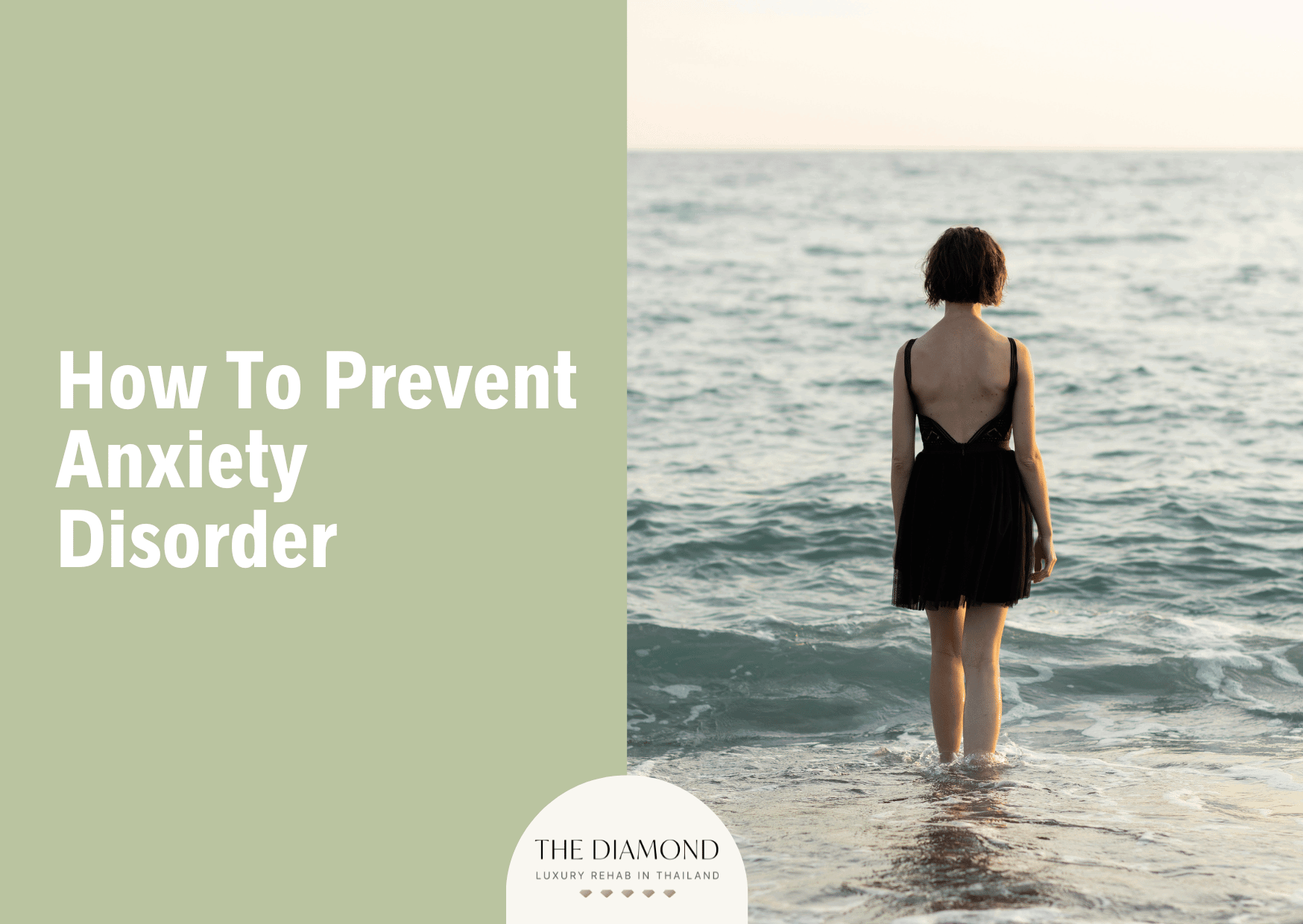
Preventing an anxiety disorder almost seems like a fool’s errand in a modern world where stress is an ever-present companion. However, it is possible to manage and reduce anxiety symptoms and make them much less likely to occur.
Stress and fear may at one point become a normal part of life, but when it starts to interfere with your daily functioning, that is when it becomes a problem. Anxiety disorder is a mental health condition that causes chronic and unsubstantiated worry, leading to significant distress. It can interfere with a person’s day-to-day life, work, and relationships.
And although early medical intervention is what mainly helps in reducing long-term issues associated with anxiety disorder, there are also things you can do to look after yourself and manage your symptoms. Some tips on how to prevent anxiety include following a healthy diet, reducing consumption of unhealthy substances, making time for self-care, and journaling.
Several factors contribute to the development of the condition. The causes of an anxiety disorder include genetics, brain chemistry, exposure to stressful life events, and certain physical health conditions. While these group of conditions may seem overwhelming – and they are – anxiety disorders are very treatable. In fact, you can also take steps and try different coping strategies to stave off your anxiety symptoms. We have listed them below.
1. Eat a well-balanced diet to look after your body
Following a well-balanced diet is one helpful step in the prevention of anxiety, and involves eating foods that help with anxiety instead of foods that can affect your mood. Some examples of healthy foods that aid in reducing anxiety include whole fiber-rich grains like oatmeal, quinoa, and whole-grain breads, as well as vegetables and fruits. Meanwhile, foods to avoid are those that contain simple carbohydrates, such as processed meat, sugary foods, and drinks.
2. Limit your intake of alcohol, caffeine, and sugar
Reducing your alcohol, caffeine, and added sugar intake is a key to anxiety prevention, as these substances are best known for being contributors to anxiety. While alcohol may be used by some to overcome social anxiety, once its effects wear off, these negative feelings actually come back worse. On the other hand, high doses of caffeine can also stimulate one’s “fight or flight” response, making anxiety worse and may even cause an anxiety attack. Added sugars are another contributor to feelings of worry and sadness, as they can cause a sugar rush that makes the body work extra hard to stabilize blood sugar levels, which ultimately leads to crashing lows.
3. Make time for yourself
If you have been searching for ways on how to avoid anxiety, you may not have to look far to find it. Making time for yourself means allotting a certain time per day for alone time and is a proven way to reset your mind and body. If you have a hectic schedule, you may not always be aware that your mind is already begging for some alone time, but it does not need to be several hours a day. Even though that would be nice, it is also possible to just squeeze in a few minutes for yourself. You can go for an evening walk after dinner, read your favorite book, or just have a quiet moment to yourself.
4. Reduce a hectic schedule to its bare essentials, and try to avoid things you don’t enjoy
Reducing a busy schedule to only the bare essentials means establishing a daily routine that only includes intentional choices about what you want to do instead of things you think you should be doing because society expects you to. For instance, it has become a norm in some work cultures to use exhaustion as a status symbol. If this is how you compare success in your profession, you might find yourself asking, “Why is my anxiety getting worse?” This could result in burnout, which can then lead to physical conditions and mental health problems over time. That said, creating daily routines helps alleviate anxiety because a regular schedule that you have chosen allows your mind and body to adjust, knowing what to expect throughout the day instead of having anxiety over the unknown.
5. Maintain an anxiety journal
Journaling is one proven way on how to prevent anxiety disorders. Journal writing for mental health involves writing down your thoughts and feelings without the need to follow any rules or format. Your thought diary can just be your private space where you can write freely and clear things in your head. This way, you can understand your emotions more clearly, keep track of them, and use your journal to work on improving habits and behaviors.
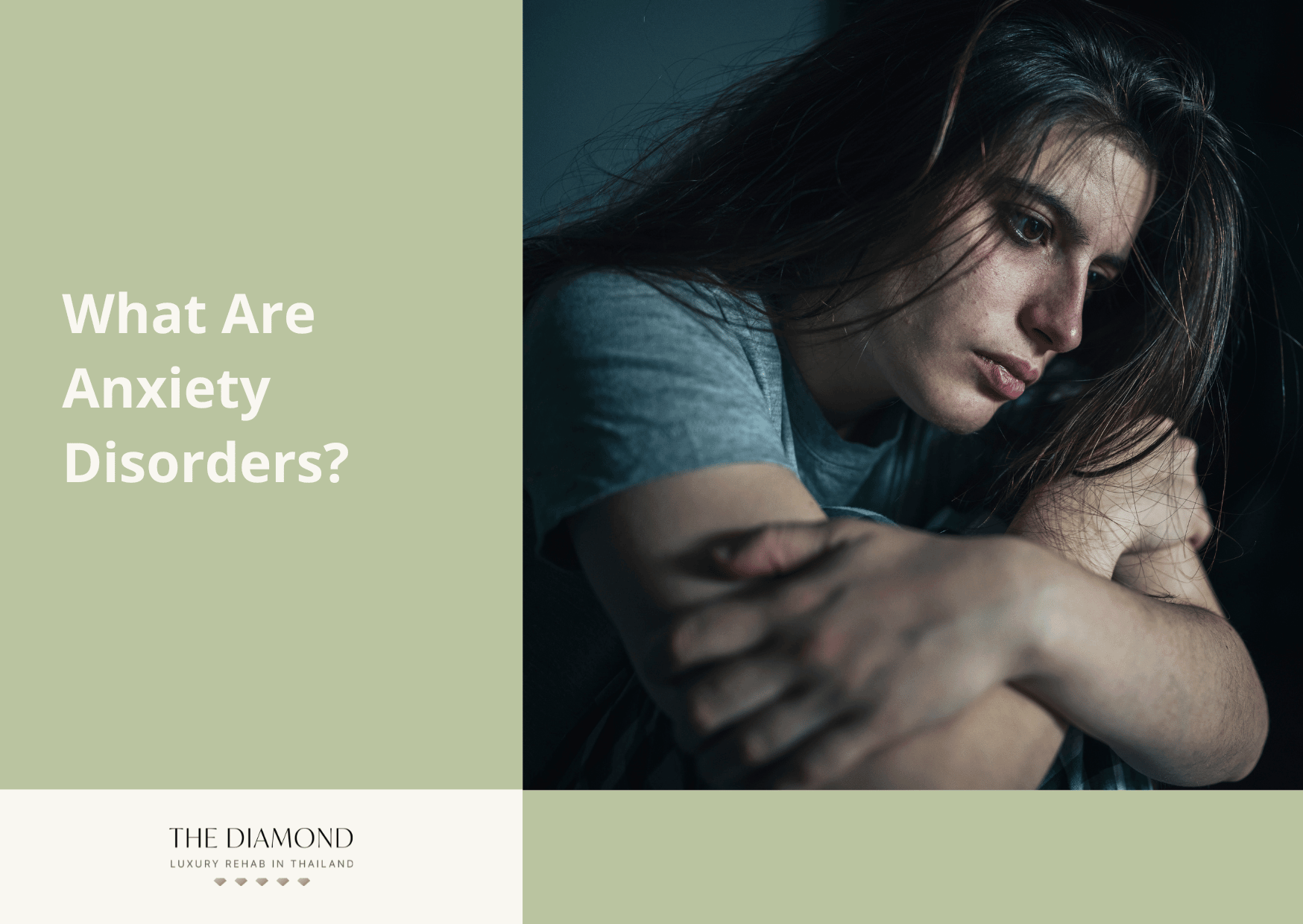
What is Anxiety?
Anxiety is an emotion that involves feelings of uneasiness and fear that could arise during stressful or unfamiliar situations. It activates a person’s fight-or-flight response, which is the body’s automatic reaction to a threat or perceived threat.
While occasional anxiety is an expected part of life, anxiety disorders can cause more than just temporary feelings of worry or fear, and instead can be an ongoing problem. People with an anxiety disorder experience persistent and overwhelming uneasiness or fear that does not go away, becoming a long-term condition and substantially disrupting one’s life.
What are Anxiety disorders?
Anxiety disorders are a group of mental health conditions that include generalized anxiety disorders, phobic disorders, and panic disorders. They are the most common mental health problems and affect approximately 30% of adults at a certain stage of their lives.
Although there is no exact answer as to why anxiety is so common nowadays, experts speculate that the increase in anxiety disorders may be caused by different factors, such as poor sleep habits, social media, and lowered stigma.
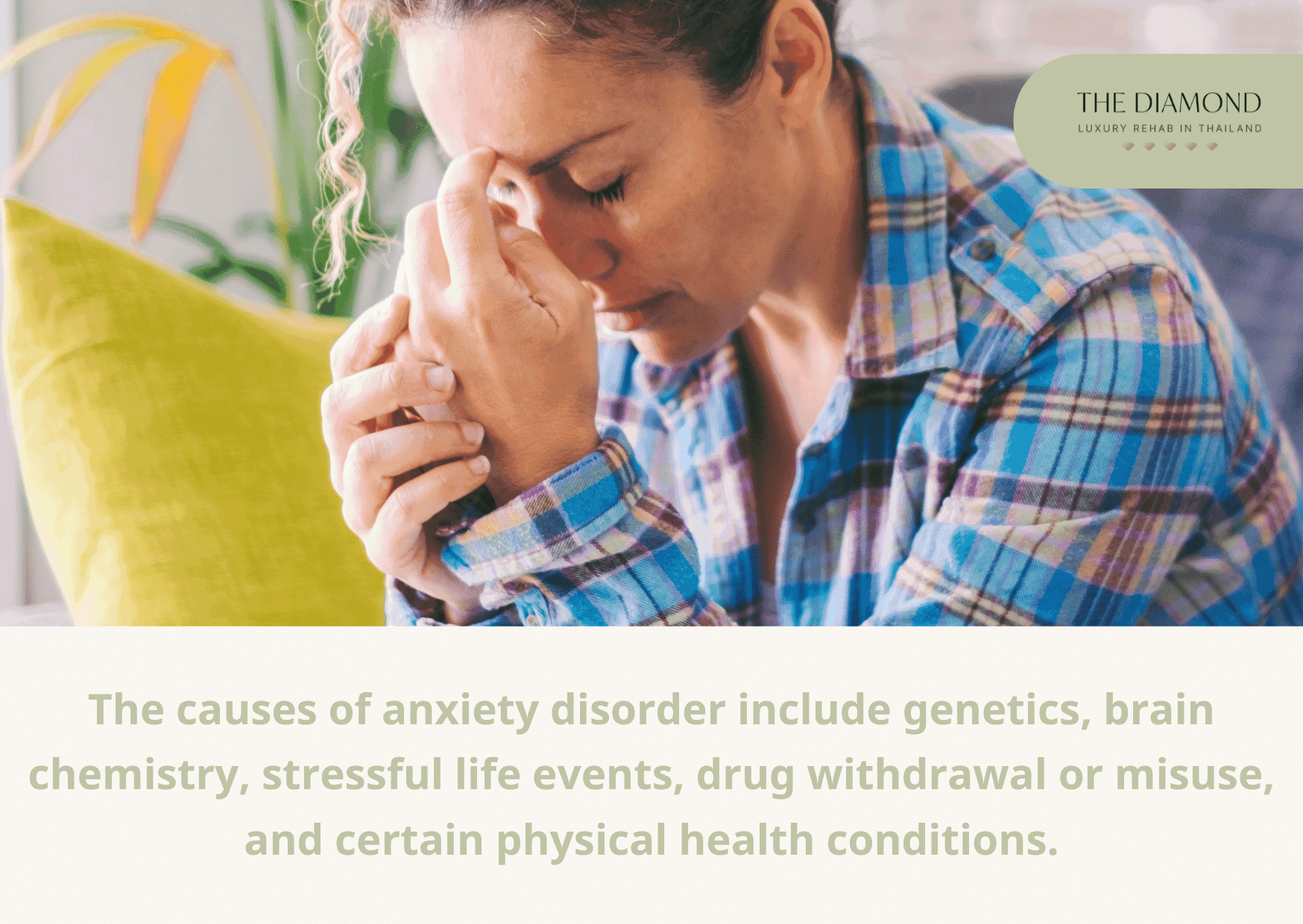
What causes Anxiety disorder?
The causes of anxiety disorder include genetics, brain chemistry, stressful life events, drug withdrawal or misuse, and certain physical health conditions. Anxiety disorder tends to run in families and can be transmitted from parents to children. However, evidence also exists that parental anxiety influences parenting style, which could contribute to the development of anxiety disorder in children.
The condition can also be a result of chemical imbalances in the brain, especially those brain chemicals that are associated with mood and anxiety disorders. Witnessing or experiencing stressful life events such as childhood abuse and neglect, a death in the family, or violence may also be the key to understanding anxiety causes in some people.
And while those with the condition may turn to substances like drugs or alcohol to tamp down their symptoms, these substances can actually make anxiety worse. In the same way, substance use can also alter the brain’s chemistry and cause anxiety symptoms in individuals.
Lastly, certain medical conditions, such as diabetes, heart disease, and thyroid problems can mimic anxiety and can also worsen symptoms of anxiety. It is crucial to undergo a physical exam to rule out other health issues that may seem like anxiety.
What happens if someone has an Anxiety disorder?
If someone has an anxiety disorder, they may have an ongoing feeling that something bad is about to occur. For people with the condition, it could be an all-encompassing worry or fear that clouds over their days and prevent them from focusing on anything else other than the thing they are worried about.
These uncontrollable thoughts also cause physical symptoms such as breathlessness, excessive sweating, and rapid heartbeat. High anxiety that goes untreated can lead to depression and even suicidal ideation.
Who is prone to Anxiety disorders?
Women are more prone to anxiety disorders than men. Evidence exists that they are twice as likely as men to have an anxiety disorder at some point in their lives. In fact, women are nearly twice as likely to have a diagnosis of anxiety disorders, such as generalized anxiety disorder, panic disorder, and specific phobias.
Most anxiety issues start to surface in childhood, adolescence, and early adulthood. Since there are various types of anxiety disorders, the age of onset varies as well. For instance, social anxiety disorder and obsessive-compulsive disorder (OCD) typically begin before the age of 15 years. On the other hand, the average age of onset for specific phobias is 7 years old while generalized anxiety disorder, post-traumatic stress disorder, and panic disorder usually start between 21 and 35 years old.
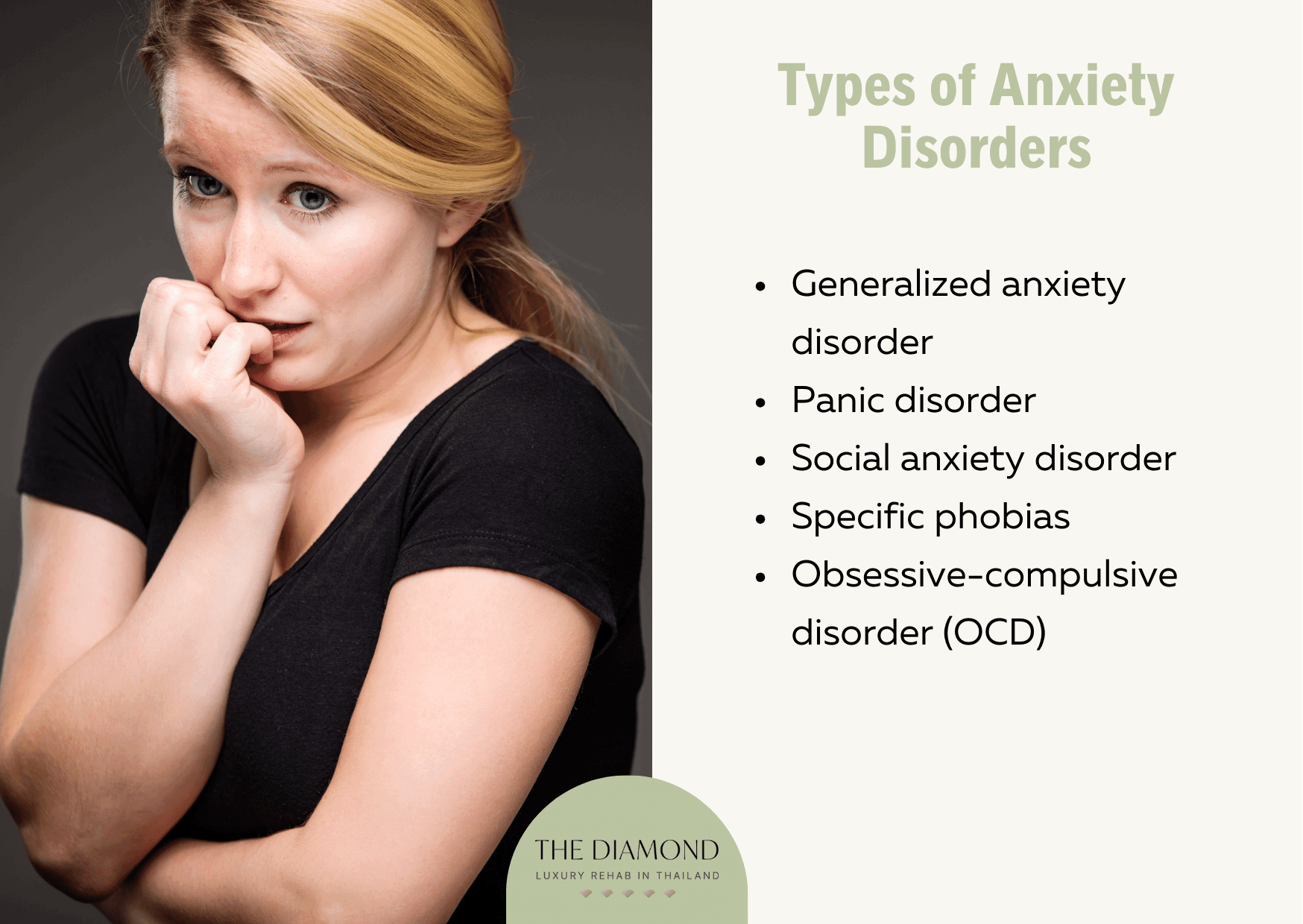
What are the types of Anxiety disorders?
Some people can have more than one anxiety disorder. The types of anxiety disorders are listed below.
- Generalized anxiety disorder: People with a generalized anxiety disorder (GAD) are often worried and anxious about everyday life events for little to no obvious reason. They tend to worry persistently and uncontrollably about multiple aspects of day-to-day life, including family, work, health, and/or financial problems. Even minor things and occurrences can cause concern, making it harder for them to live normal lives.
- Panic disorder: is an anxiety disorder characterized by recurring, unexpected feelings of intense fear combined with physical symptoms such as chest pain, excessive sweating, shortness of breath, heart palpitations, and dizziness. These signs are indicative of a panic attack, which can occur even when there is no real danger.
- Social anxiety disorder: Also known as social phobia, this type of anxiety disorder is more than just shyness. Instead, it involves intense fear and anxiety in everyday social situations. These feelings are often driven by irrational worries about being humiliated, judged, or scrutinized in front of others.
- Specific phobias: are an intense and unreasonable fear of objects, situations, or activities such as heights, snakes, spiders, and traveling by plane, which pose little to no real danger. The fear is often out of proportion to the actual risk and even though people with the condition may realize this, sometimes just thinking or seeing the feared object is enough to cause severe anxiety symptoms.
- Obsessive-compulsive disorder (OCD): A mental illness in which a person has uncontrollable, recurring thoughts, urges, or sensations that make them feel compelled to do something repeatedly. If you have OCD, you are probably aware that your obsessive thoughts and repetitive behaviors are irrational, but you feel as if you cannot resist them.
Other types of anxiety disorders include:
- Post-Traumatic Stress Disorder (PTSD)
- Selective Mutism
- Separation Anxiety
- Medication-Induced Anxiety Disorder
- Agoraphobia
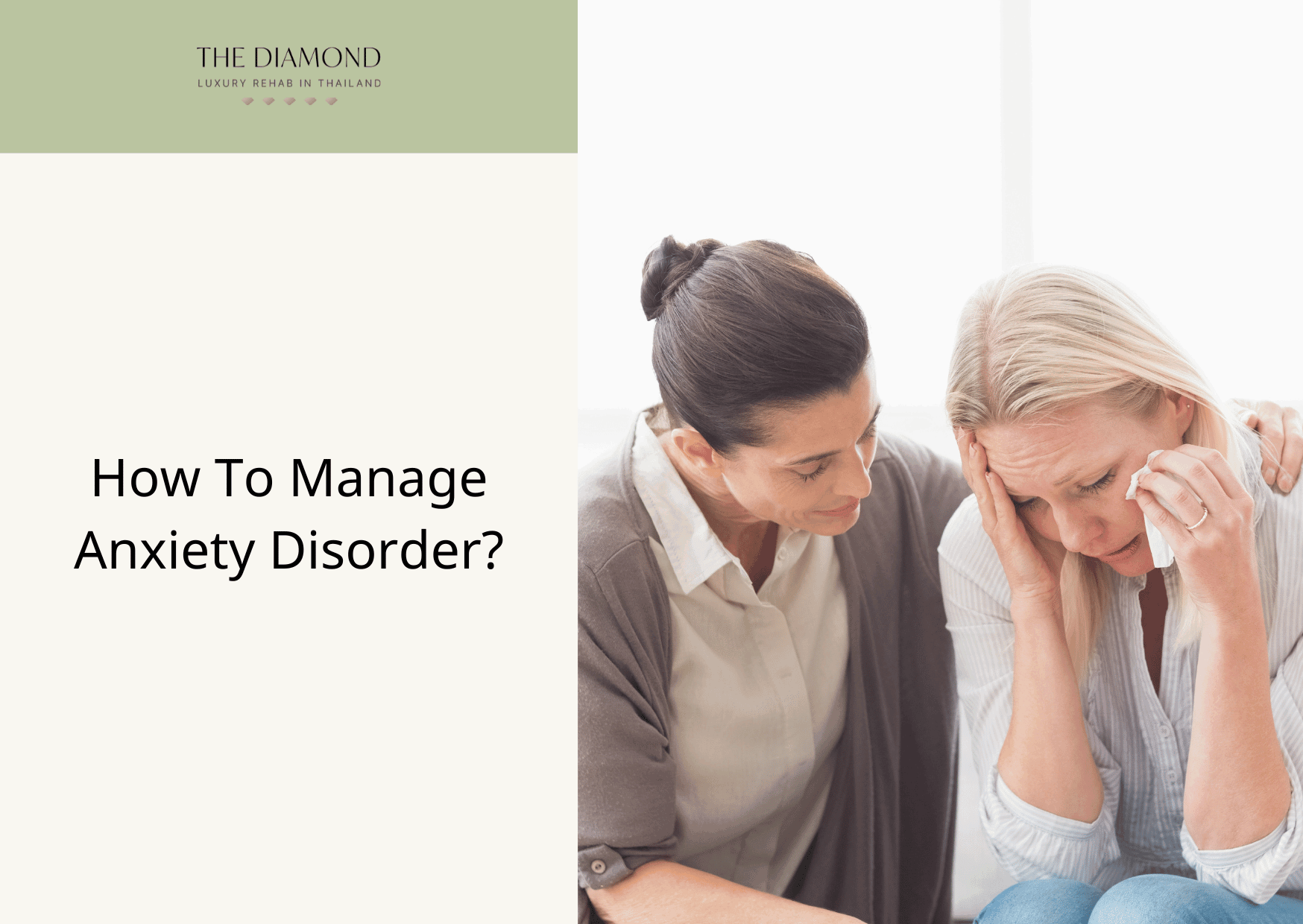
How typical are Anxiety disorders?
Anxiety disorders are some of the most common mental health concerns, as these conditions affect almost 300 million people around the globe, according to the World Health Organization (WHO).
People with these conditions have one thing in common: they have persistent and excessive anxiety or fear in situations that pose little to no actual threat. Many people speculate that anxiety is much more common nowadays due to the stress and challenges brought by the modern world, which are contributing factors behind anxiety getting worse in some people.
Is it possible to prevent Anxiety disorders?
No, it is not possible to prevent anxiety disorders. According to research, this is largely due to limited knowledge about the protective factors against different forms of anxiety. Protective factors are individual, familial, or environmental characteristics that reduce the effects of traumatic life events.
The knowledge of these factors and how they are related to each other are crucial in developing specific preventive strategies for anxiety disorders. The limited knowledge on such factors is also a result of the lack of prevention studies on these mental health conditions.
Fortunately, even without evidence-based knowledge at the moment, anxiety is still highly treatable. With the help of therapy or medication, or a combination of both, along with the self-help strategies we have enumerated above, it is possible to reduce or manage anxiety symptoms, so you can start living a life where you can feel anxious while still being productive.
